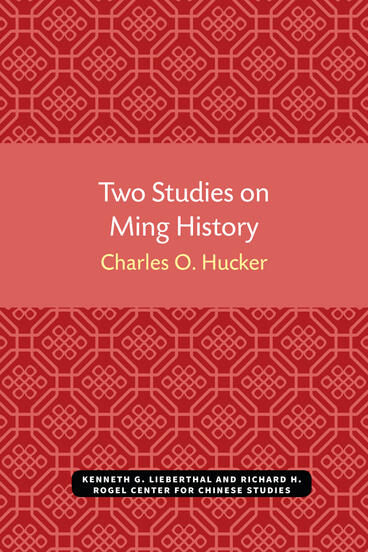Two Studies on Ming History
A historical analysis of a famous military campaign in 1556, and a translation of a narrative account of a popular uprising in 1626
Description
In the first study of Two Studies on Ming History, Charles O. Hucker presents an account of a military campaign that provides insight into the nature of civil officials’ authority, decision-making, and relationship with the Ming court. In the spring and summer of 1556, a Chinese renegade named Hsü Hai led an invading group of Japanese and Chinese soldiers on a plundering foray through the northeastern sector of Chekiang province. Opposing them was a military establishment that for years past had been battered by coastal raiders, now under the control of an ambitious and clever official named Hu Tsung-hsien. The campaign was not one of the most consequential in China’s military history, even during the Ming dynasty (1368–1644). But it was famous and well reported in its time, and it illustrates some of the unusual ways in which the Chinese of the imperial age coped with the often unusual military problems they faced.In the second part of Two Studies, Hucker presents a translation of K’ai-tu ch’uan-hsin, a popular narrative of a spontaneous demonstration in which literati and commoners alike rose up to defend an austere and incorruptible adherent to Confucian morality who had been doomed to die because of his defiance of the ruthless and heterodox clique that had usurped imperial power. In 1626, Chinese political morality was at one of its lowest ebbs. On the throne at Peking was an incompetent twenty-one-year-old emperor who was much too occupied with puttering at carpentry to pay attention to the government. Into the vacuum stepped Wei Chung-hsien, the favorite of the emperor’s governess. Wei used brutal terror to make himself undisputed master of the vast bureaucratic mechanism that administered China. One of Wei’s many victims was Chou Shun-ch’ang, a member of the official class who was said to have hated evil as a personal enemy. Chou became critical of Wei, an order was put out for Chou’s arrest, and a popular uprising occurred in protest.
Charles O. Hucker is Professor of Chinese and of History at the University of Michigan.

